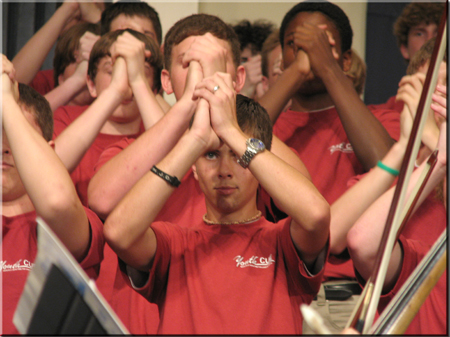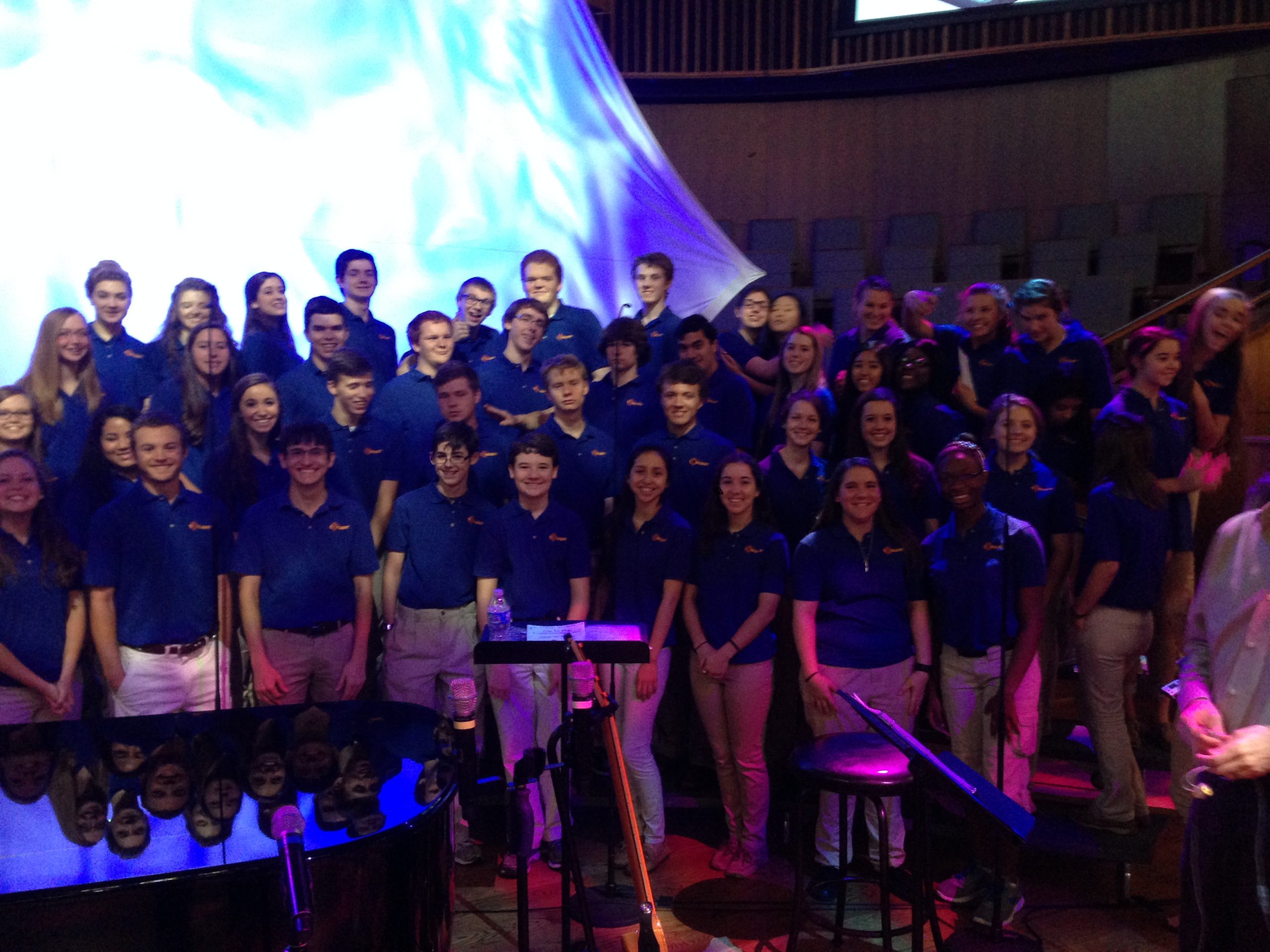I was listening to an interview on NPR with the writer of the recent film “The Intern.” In passing, she said,
“you know, wisdom never gets old.”
(By the way, it is a really good film, I recommend it to you!)
That interview made me think about wisdom, what is it? How do you recognize it when you see it, or hear it?
What are the characteristics of the wisest people that I have ever known?
While there are no simple answers to those questions. There is no ONE thing that constitutes wisdom. And it would be impossible to cover it all in these few lines.
So, I have chosen to talk about just one aspect of wisdom—asking great questions.
Now, you are probably thinking: “this is a blog for student choir directors, what does ‘asking great questions’ have to do with THAT??”
Hold on—we will get there.
One of the wisest people I have ever known was a former Pastor that I had the privilege of working with for 5 (short) years. His name was Daniel Vestal.
With some people (with some Pastors) you had better have “all your ducks in a row” prior to going in to talk to them.
Don’t bring them “half-baked” ideas or you will be disappointed in how the conversation goes.
But that isn’t true of a wise person.
First of all, wise people know how to listen. They hear the heart of the person with whom they are speaking. They really listen.
In theater classes, we teach actors how to show “active listening” to the audience.
A wise person doesn’t have to be taught how to actively listen, they do it instinctively.
Further, they know how to ask questions that go directly to the heart of the issue.
Also, a wise person is rarely in a hurry to interrupt a conversation with a solution.
Wise people have learned to wait on God, to listen for His voice.
When you read the Bible you notice that God was rarely in a hurry, and He had a whole universe to keep track of.
Wise people are like that—waiting to hear from God and confidently speaking when prompted by His Spirit.
Asking the right questions means that the simple, obvious questions are left for you to figure out for yourself, those questions are rarely even asked by a wise person.
The real challenges you are facing in the decision making process often have to be “mined” deeply.
This week our church staff went on a retreat for a few days to Camp Tejas, about 2 hours from Houston.
There was a group of 150 high school students also staying there.
At meal times it was sometimes obvious which of the staff members routinely work with high school students and which ones didn’t.
The three of us who work with high school were comfortable being surrounded by the young people—when they came into the Dining Hall the atmosphere changed—dramatically.
Some of us noticed the sudden, vibrant energy in the room, others noticed how loud they were.
It reminded me of a recent conference when I was teaching about student choirs to other ministers of music.
Many times they will say, “I just don’t GET today’s youth, it used to be a lot easier to talk to them, but, well. . . . . “ and then their question sort of fades off.
Sometimes they will ask me, how do you stay relevant with “today’s kids.” I suppose they ask that since I am in my sixties and some of them are struggling with this issue and they are still in their 40’s or 50’s.
My answer?
What questions are you asking?
Kids, like people in general, don’t like being treated like a “group” or a “category.”
When attempting to engage high school students,
DON’T ASK:
What grade are you in?
What are you going to be when you grow up?
Did you have a lot of homework this weekend?
and on and on with mindless questions that sound as if you are just going through the motions.
I hear adults using this line of questioning all the time.
Those questions communicate that you are in an uncomfortable situation and you are trying to make the best of it with shallow, safe questions.
Instead, go a bit deeper.
Try something like this:
What makes you happy everyday?
If you had to pick just one of your classes that you would go to twice per day which one would you pick?
Did one of your friends surprise you with anything this week? Did God?
When you are not in school what activity makes time stand still for you, or causes you to lose track of time?
What is your favorite thing about your best friend?
If you could go back in time to live there for a day or a week, would you? What time would you pick?
What is the best birthday gift you ever received?
There are so MANY of these that I could go on and on, but you get the idea.
Like so many things in life, aspects of wisdom can be learned and developed.
Try imitating what the wisest people in your life do. You can get better and better at it.
Randy Kilpatrick
CueWEB
10-10-15









